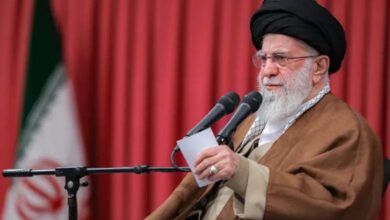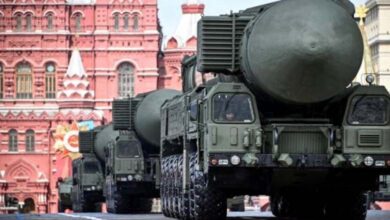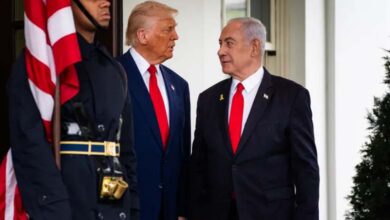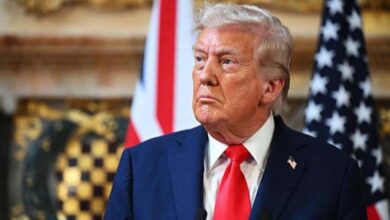Sanctions: Can Iran Survive Through a Last-Minute Solution?
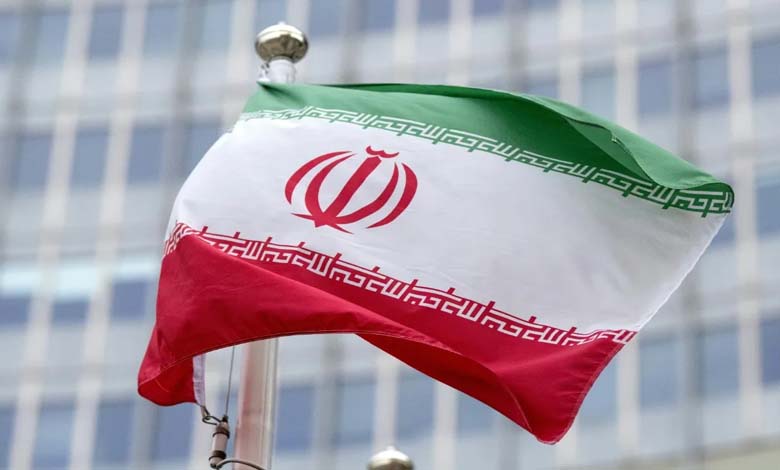
Mathematically, the upcoming UN Security Council vote appears set to restore sanctions against Iran, but a glimmer of hope remains: the possibility of a “last-minute” breakthrough.
The Security Council is scheduled to vote Friday on reimposing sanctions on Tehran over its nuclear program.
-
Iran executes man convicted of spying for Israel
-
Iran’s Nuclear Program Surpasses the Threshold of Military Resolution: Uranium at a Dangerous Level
This follows the recent activation of the so-called “snapback mechanism” by Germany, France, and the United Kingdom, as outlined in the 2015 nuclear deal. The move comes just days before the UN General Assembly, which may still provide an opportunity for renewed negotiations.
If the resolution fails, sanctions will automatically be reinstated by the end of next week, unless the UN summit — attended by Iranian President Masoud Pezeshkian — succeeds in launching a new and more constructive round of talks.
Analysts believe the Council still has time to authorize a new resolution extending the suspension of sanctions if Iran and the Europeans reach a last-minute compromise.
-
Large-scale cleanup operation at a nuclear site: Is Iran erasing evidence of secret activity?
-
Under the Rubble… Iran reveals the fate of uranium after the U.S. strike
“Fair and Balanced”
On Friday, Iranian Foreign Minister Abbas Araghchi announced that he had submitted a “fair and balanced” proposal to European powers to prevent the UN from reimposing sanctions on Tehran.
On platform X, he wrote that Iran was “offering an innovative, fair, and balanced initiative that addresses genuine concerns and benefits both sides.”
The proposal was submitted Thursday to the United Kingdom, France, and Germany — the so-called European “troika” — as well as to the European Union.
-
Iranian-European Talks on Nuclear Issue and Sanctions
-
Iran threatens to use more advanced ballistic missiles if attacked by Israel
Araghchi added: “There is a path forward, but Iran cannot be the only actor bearing responsibility.”
At the end of August, the three European states party to the deal triggered the “snapback” mechanism, allowing sanctions to be reinstated over Iran’s non-compliance with the agreement. The United States had already unilaterally withdrawn from the accord in 2018, reimposing its own sanctions on Tehran.
The official notification to the Security Council triggered a 30-day period, set to expire at the end of next week, after which sanctions will automatically return. The Council’s rotating presidency confirmed that the debate on this matter will begin Friday at 10 a.m. (14:00 GMT).
-
Diego Garcia: U.S. Withdrawal from a Base Used to Deceive Iran
-
Iran Does Not Rule Out a New War and Prepares for the Worst
A “Last-Minute” Solution
For Friday’s text to pass, Russia and China — opposed to the reimposition of sanctions — would need nine affirmative votes out of the Council’s 15 members, a threshold diplomatic sources say is unlikely to be met.
Richard Gowan of the International Crisis Group told AFP: “Algeria and Pakistan may support Russia and China in opposing the sanctions.”
He added: “But other members are more likely to vote against or abstain, meaning Europeans and Americans will not need to use their veto power.”
Nevertheless, he stressed that the Council could still approve a new resolution extending the suspension of sanctions if Iran and the Europeans reach a last-minute compromise.
-
European Troika Poised to Confront Iran with the Sanctions Weapon
-
Iran announces upcoming visit by IAEA inspectors within two weeks
Voting Dynamics
Under Resolution 2231, which provided the legal framework for the Iran nuclear deal, the vote concerns maintaining the suspension of sanctions. To pass, the resolution requires nine votes in favor out of 15.
Diplomatic sources confirm that this threshold is unlikely to be achieved, which would mean sanctions will return.
Since the U.S. withdrawal from the deal, Iran has progressively rolled back several of its commitments, particularly on uranium enrichment.
-
Production Gap: Deadly Flaw in U.S. Missile Shield Exposed by Iran War
-
The Weapons Code Opens the Door to Internationalization… Yemen Protests to Iran Over Houthi Arms
Western countries suspect Tehran of seeking to develop nuclear weapons, a claim Iran denies, asserting its program is for civilian purposes only.
Against this backdrop, after repeated warnings and negotiations, and just weeks before Resolution 2231 expires, Paris, London, and Berlin triggered the snapback mechanism.
Despite ongoing talks, the three European states reiterated this week that they are still waiting for “concrete measures” from Iran.



